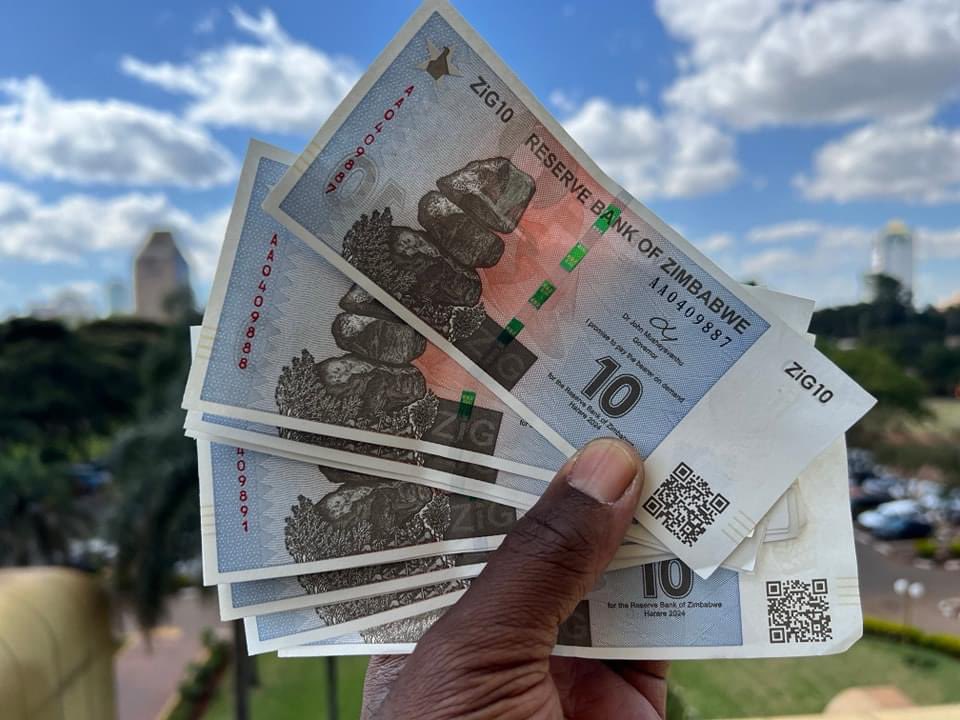ZIMSPHERE
HARARE – Zimbabwe's Minister of Finance, Economic Development, and Investment Promotion, Mthuli Ncube, announced on Tuesday that the ZiG (Zimbabwe Gold) is now the official unit of exchange. The move is part of the government's efforts to promote market adoption and acceptance of the country's new currency.
The full rollout and disbursement of the ZiG to the market are still being handled by the government.
Ncube emphasized that all Ministries, Departments, and Agencies (MDAs), as well as the private sector, should recognize the ZiG as the official currency for all financial transactions with immediate effect. The Public Finance Management System (PFMS) is being configured to enable revenue collection and payment of goods and services in the local currency.
"As Government continues to configure its Public Finance Management System (PFMS) to facilitate revenue collection and payment for goods and services in local currency, all Ministries, Departments, and Agencies (MDAs), and the private sector alike, are hereby advised to accept and recognize the ZIG as the official currency for all financial transactions, and payment for all goods and services, effective immediately," stated Ncube in a released statement.
The ZiG is a gold-backed currency introduced by the government to stabilize the economy, restore confidence in the financial system, and provide a conducive business environment.
Despite stability on the official market since its launch in early April, the ZiG has faced challenges on the parallel market, where traders charge a premium of 65% above the official rate to obtain dollars.
Some supermarkets are also charging customers a premium above the market rate of ZiG 13.6 per U.S. dollar for payments made in the new currency. Informal traders have been rejecting the ZiG.
To maintain the value of the ZiG, the government has established a "liberalized foreign exchange market," with the exchange rate being freely determined by the banking system based on supply and demand.
Ncube confirmed that the Reserve Bank of Zimbabwe holds sufficient gold and foreign exchange reserves to back the local currency money supply in circulation, ensuring that legitimate requests for foreign exchange via the banking system will be fully satisfied.
He emphasized that the prevailing average interbank foreign currency selling exchange rate published by the Reserve Bank of Zimbabwe should be the sole basis for pricing goods and services.
The government will introduce regulations to enforce the use of the official exchange rate in order to ensure orderly pricing.
"The urgency and importance of a swift transition and market adoption of the ZiG by all stakeholders cannot be overstated. We call upon all MDAs and the private sector, including retailers and service providers, to accept the ZiG in all financial transactions, including payments of salaries as well as procurement," Ncube urged.
Unless specific legislation allows charges or fees to be collected in USD only, the government and private sector collections will be made in ZiG or any of the currencies in the multi-currency basket, without insisting on a specific currency type or indexing invoices to the USD.
This marks Zimbabwe's fourth attempt at introducing a local currency in the past decade. The country abandoned the Zimdollar last month after it had lost 70% of its value since the beginning of the year.









.jpeg)

.jpg)





.jpg)


0 Comments